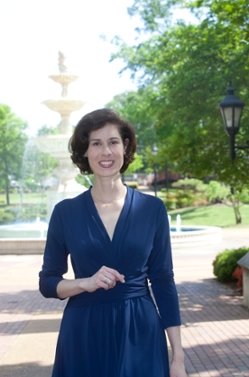Student and Faculty Spotlight
Natasha Thomas
By Savannah Johnson
The Fulbright U.S. Student Program grants its recipients round trip travel, room and board, and health insurance. They can apply to pursue a Master’s abroad and have their tuition covered, or they can conduct a research project in another country and get a living stipend. Natasha Thomas, who is graduating May 2017, is a social work major hoping to be the next Fulbright recipient.
Thomas’ senior capstone project is on HIV/AIDS research, so her plan is to conduct a research project on HIV/AIDs in Ireland for the Fulbright scholarship. She has already gotten confirmation from a HIV clinic in Ireland to be her host affiliation, so she will be working with them for the year that she is there.
She says the application process to be considered for the scholarship has already been a rewarding learning experience. It has taught her more about herself and about what she would like to pursue in a career, as well and says there is nothing better as a graduating senior than finally knowing what you want to do with your life.
Thomas says her time at UNA has taught her so many things, but the most important is that success is not achieved alone. “One of the most important things I’ve learned is that success is not achieved alone. It is because of my relationships with professors, staff, supervisors, and fellow students that I have achieved all that I have throughout my collegiate career.” She attributes a lot of her success to networking, and says it has taught her about making connections with people.

Dr. Sarah Franklin
By Savannah Johnson
Growing up in South Alabama, and after spending ten years away from Alabama for graduate school, Dr. Sarah Franklin, Associate Professor of History, was thrilled to return to her home state to begin teaching at The University of North Alabama.
Aside from being surrounded by faculty, staff and students that encourage her daily, her favorite part of teaching is the freshmen. Not only do first-year students need more time and support as they learn their way around campus life, but their excitement to be there is contagious.
“Go to class!” This is the piece of advice Dr. Franklin provides her students. She said that going to class is the beginning; everything else comes out of that. Beyond that, ask for help when you need it.
In 2012, Dr. Franklin had a book published that studied Women and Slavery in Nineteenth-Century Colonial Cuba. These days, Dr. Franklin is focusing on a new project that examines women and slavery in a more comparative way. For example, how did the experience of enslaved mothers on plantations in the U.S. South and Brazil differ? What does that tell us about slavery and those two disparate societies?
Some people claim that there is no need to study or major in History unless one is wanting to teach it. Dr. Franklin said, “History as a discipline teaches students to think and to communicate. The federal government, for example, hires large numbers of history graduates in both managerial and intelligence positions. Historians have a distinguished record of military service. They also are among the leading fields for entry into professional and graduate schools, such as law school. In short, a history degree prepares a student to excel.”
